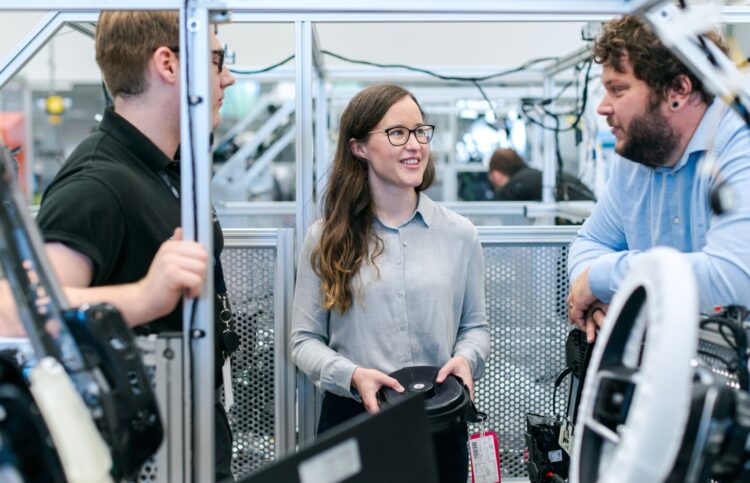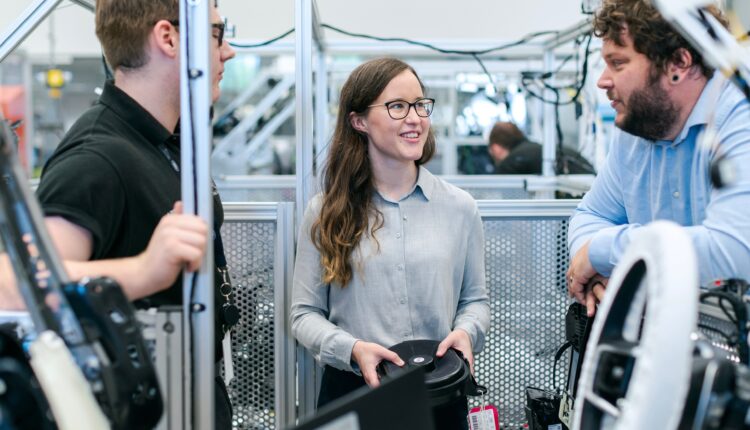Technological change must put people at its core
National conference, organised by Mersey Maritime, hears how the maritime sector is forging ahead with new technology – and taking people with it. Tony McDonough reports

Technological change and innovation will not be beneficial if it doesn’t fully incorporate the needs people at every stage.
That was one of the key themes of that came from the technology and innovation panel at the second annual Maritime Exchange conference, organised by Mersey Maritime. Leaders from across the industry joined senior politicians at the virtual event.
Delivering the keynote address for the session, Sarah Kenny, chief executive of BMT Group and vice chair of Maritime UK, said the COVID-19 pandemic had caused her to “stop and rethink” about the technology and innovation agenda and about the pace and acceleration of change.
“The very rapid adoption of virtual working technologies over the past few months has brought about a profound change to the way we work,” she said. “Not only does this demonstrate the potential for rapid introduction an adoption of technology but also just how quickly technology can be fully integrated into the way we work.”
She talked about how different industries had come together during the pandemic to design and develop ventilators for COVID patients. It was a collaborative effort, she said, that had “enabled the acceleration of product development from years to weeks”.
“If I can see something beneficial coming from this pandemic it is that it has set the pace of change for this coming third decade of the 21st century,” added Sarah. “Not just in technology introduction and adoption, but also in new and more agile collaborative business models and more innovative and inclusive ways of working.
“We need to consider the wider implications. It is easy to be seduced by what the technology has to offer and to overlook the wider aspects that could lead to unintended consequences.
“Technology can transform our sector but we must be propped for innovation across all aspects of our business, too. There is an opportunity in the integration of people and technology, modernising our traditional organisational structures.”
Sarah spoke about the emerging technologies in maritime that Maritime UK was actively promoting, with projects in autonomy and robotics, novel power and propulsion systems, novel fuels, energy efficient fuels, energy efficient vessels, energy storage, smart navigation.
She also talked about a plan for a new ‘coastal highway’ that would see safe, zero-carbon autonomous vessels reduce the need for land-based haulage. Sarah posed the question “How fast can we go and how fast should we go?”
And she concluded with a quote from Charles Darwin, who said: “It is not the strongest of the species that survive, nor the most intelligent. It is the one that is most adaptable to change”.
The panel discussion was chaired by Caroline Price, director Green Ports at Royal HaskoningDHV. And she posed the question: “What are the biggest opportunities for technology and innovation in maritime right now?”
Clive Hickman, chief executive of the Manufacturing Technology Centre (MTC), said its focus was on manufacturing processes development. He explained: “What we have fond in the past 10 years is that processes are just as important as technology.”
The MTC was established in the West Midlands and now employs 30 people at its Liverpool base, projected to rise to 200 in the next couple of years. Clive identified three key priorities in its work:
- Net zero carbon
- Increased productivity
- Upskilling the workforce
He said: “One of the things we are looking at is using digital manufacturing to help physical manufacturing. We do this by simulating the process digitally before implementing the process physically.”
Clive also talked about a project funded by Maritime UK and being delivered in the city region. It is looking to design and develop zero-emission vessels that would service the wind farms in Liverpool Bay.
“We have windfarms in Liverpool Bay that are generating emissions-free energy but the turbines are being serviced by vessels that are powered by diesel,” he explained. “The project is looking to develop zero-emission vessels.”

He added that building the first vessel could cost £50m. At the moment, EU rules prohibit the Government from subsidising shipbuilding but Clive said post-Brexit it is possible the Government could fund one of the vessels. This, he said, had the potential to be a game-changer.
Clive also challenged the idea that robotics and automation lead to job losses. He added the opposite that was true and that it often led to the creation of new, higher-paying jobs. But he warned that it was critical to invest in the upskilling of people in order to reap the rewards the technology offered.
Picking up the theme of the importance of people, Kevin Smith, founder of Maritime Digital, said most people who would be affected by or play a major role in bringing about transformation were not engineers or data experts.
Therefore, he added, it was essential that there was a “digital language pledge” and that the digital experts and engineers communicated their ideas in ways in which most people could understand.
“A simplified way of understanding the technology would mean people would be better placed to support innovation,” explained Kevin. “It would allow people to be able to take part in the discussion about how technology is implemented.
“It is about getting down to the grassroots level. The person actually doing the job is usually the best person to say how the technology needs to work.”
Professor Mark Gillan, Strength in Places Fund programme director at Artemis Technologies, told how he had worked in Formula 1 motor racing and talked about the sport was “second to none” in developing new technologies.
He cited an example of how Formula 1 experts had helped the British Americas Cup team develop a hydrofoil vessel that actually lifted out of the water, thereby reducing drag and enhancing speed and range.
The session also included pre-recorded contributions from the Manufacturing Technology Centre, Hill Dickinson, Western Union Business Solutions, Virtual Training Centre, Maritime Digital Hub and the University of Liverpool.

